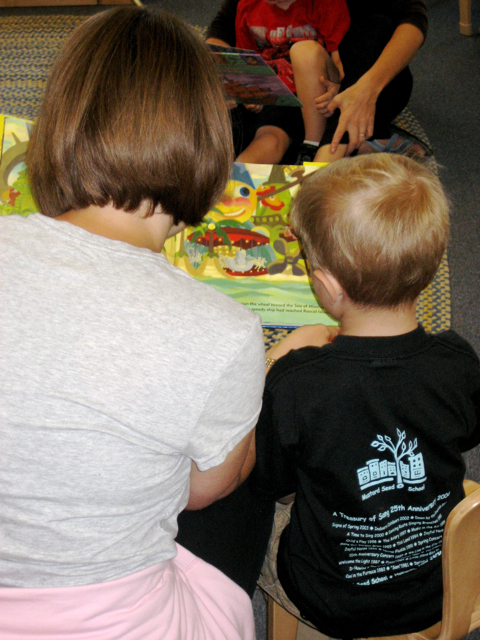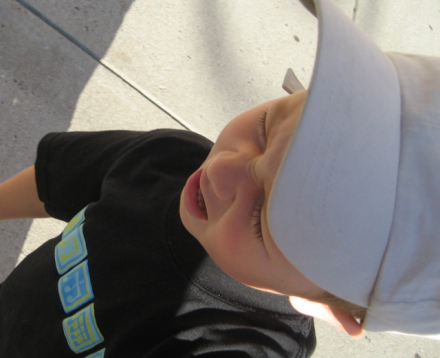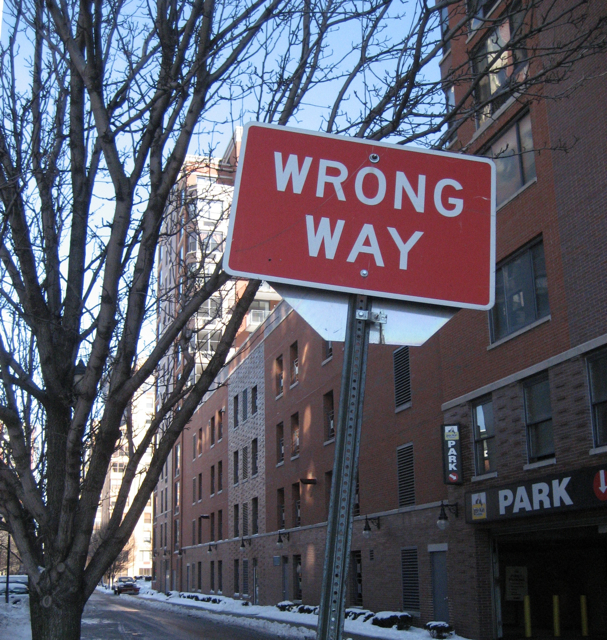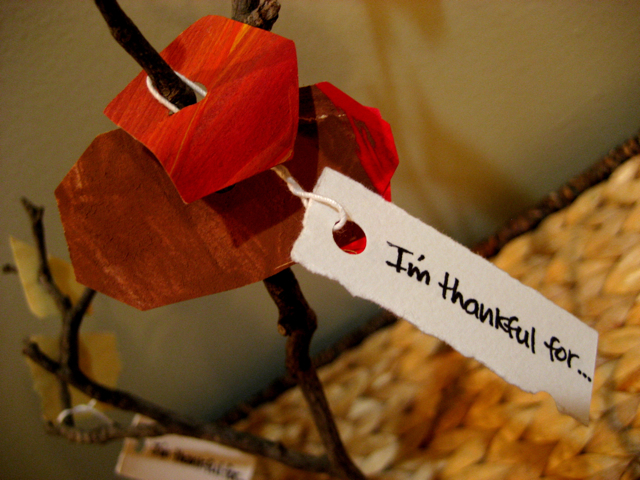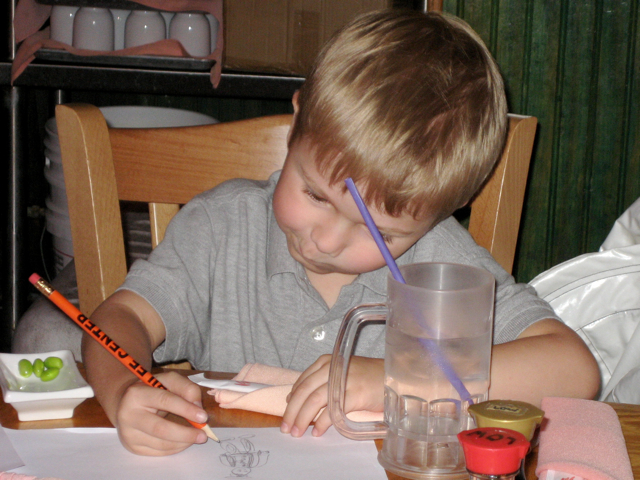Just pokey?
 Saturday, September 4, 2010 at 6:42PM
Saturday, September 4, 2010 at 6:42PM 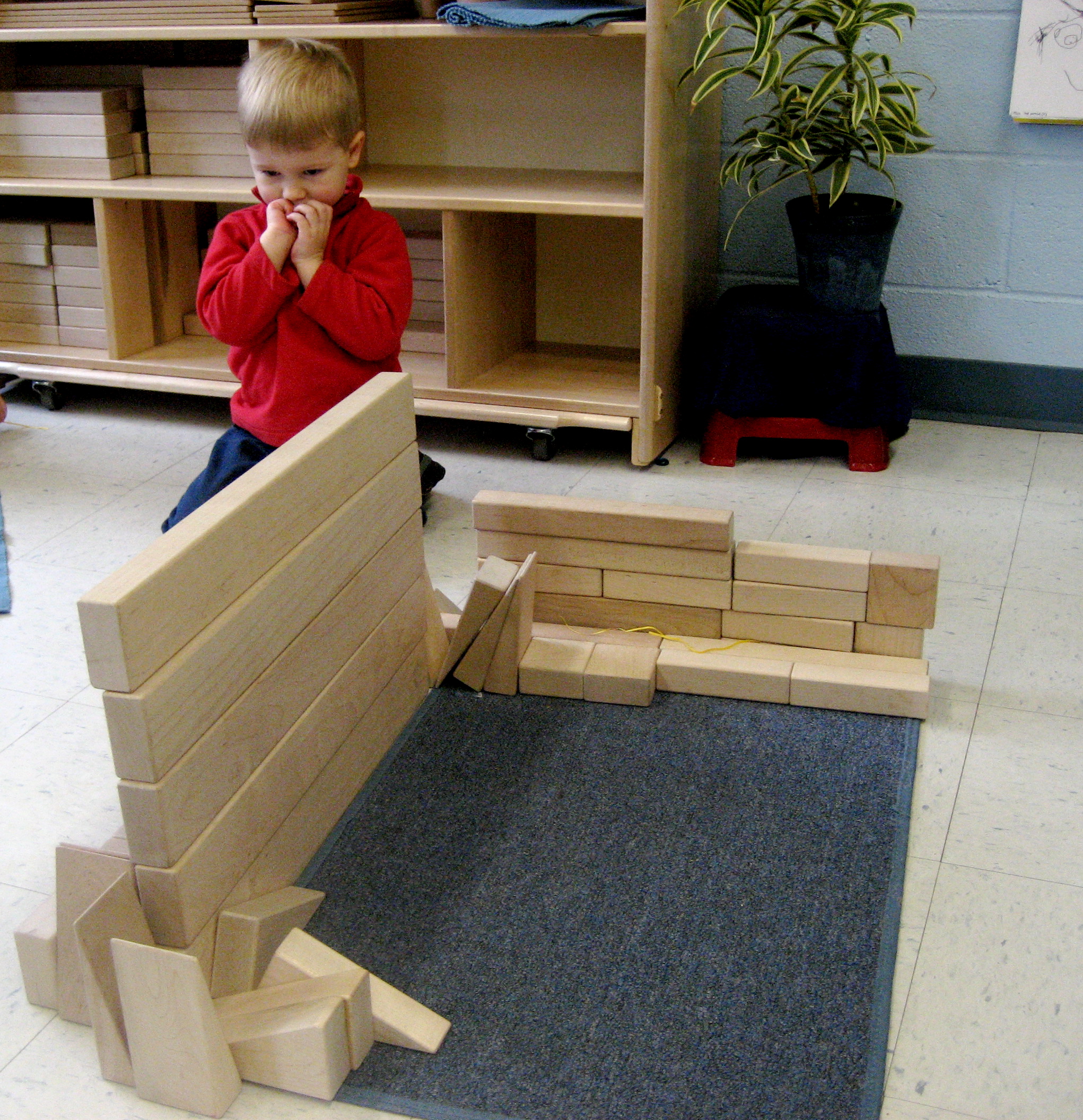
When WJ was in the middle of his first year of preschool, I watched his class walking down the flight of stairs from the classroom to exit the building. A group congregated outside, children in a line, holding hands with their partners. They looked ready to walk to the park. But the class did not yet move. They were still waiting for WJ and the handful of other children trapped behind him as he dawdled down the stairs. I watched this scene every day but on one particular day the preschool director stood next to me and asked, “Is WJ just pokey?”
WJ had always been a bit of a slowpoke. A careful child. Not a big risk-taker.
I saw it with my own eyes and wondered about it. But hearing an educational professional make note turned my wondering into worrying. I spent the next several months going over his developmental milestones in my head. WJ had always reached gross motor markers just about the day before the parenting books said it was time to worry. He was always within normal limits, but often at the very far end of those when it came to physical development.
At his four year-old check-up I mentioned my worries to his pediatrician. I explained the school director’s questioning of his speed and a comment or two from his teachers about his avoidance of gross motor activities. I explained my own worry about his speech development, which seemed to also be in this late but normal range. I expected her to respond with her customary and reassuring every-child-is-unique kind of way. Instead she took off her glasses and explained that if we had concerns in more than one developmental area, which we did—gross motor and speech, it would be wise to rule out any underlying cognitive issues and she wrote a referral for a complete battery of evaluations at the local child development institute.
In shock, I went home and began scheduling appointments: developmental/cognitive assessment, speech evaluation, hearing test, language development assessment, occupational therapy evaluation, physical therapy evaluation.
Here is what we found out. WJ has some low muscle tone which makes some physical tasks more difficult for him to master. Exactly what we had suspected. There were no major problems but several of the evaluators suggested that a few months of therapy would help him build strength and muscle tone and help us as parents better know how to support his growth at home.
What they suggested was true. Within several months, we noticed WJ running and climbing with friends and fewer people asking me to translate his speech.
Watching WJ work to exhaustion in his speech and physical therapy sessions that year brought me to a new level of understanding about what school must have been like for him. That pokiness on the stairs manifested itself in other places in the classroom as well. He would often be in the role of observer. Like a sports commentator, he liked to watch other children work and to talk about what they were doing but he was slippery about getting involved himself. He took a lot of breaks, wandering around a bit. WJ often seemed to be off in another world, daydreaming.
I began to wonder if these behaviors were the result of physical exhaustion. Simple tasks like climbing up and down the stairs, sitting crisscross on the rug during circle time, controlling scissors and manipulating hard clay, all of these tasks were just a little harder for WJ than for most and took a little more of his physical energy to complete.
While it may seem illogical to bring issues like climbing skills and running speed or a child’s grip on a crayon and ability to mold clay into the decision about school placement, I would argue that these issues are more important that we may think. Physical and mental energy are connected. If your body is tired, your mind is less available to learn, organize thinking and problem-solve. While it is true for all of us, I believe this affects young children especially because their coping skills are still so immature. Perhaps WJ’s adventures in La-La-Land were less about being a dreamy child and more about a lack of energy and strength. As I researched this, I felt a stronger pull toward the decision to wait for kindergarten.
With validation that WJ reaches milestones in the physical realm a little later than many children, we were able to see that some extra time to develop physically would help him to be ready to engage as actively as possible in the social and cognitive work of school. You cannot rush development; you cannot teach strength. But you can wait. Growth takes time.





